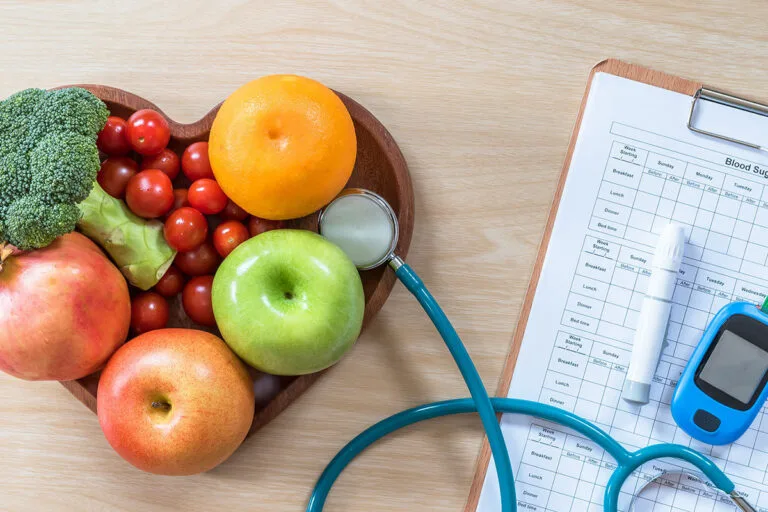Did you know?
- More than 30 million Americans suffer from diabetes and 95 percent of them have Type II diabetes.
- Type 2 diabetes develops when your body does not respond to insulin properly. The pancreas still produces insulin but there may be less of it or it might not work effectively.
- This may be caused by genetic factors but can be triggered by being overweight and lack of physical activity.
- It usually occurs in people over the age of 30 but is becoming more common in children and young adults due to obesity.
- The onset is usually slow and sometimes difficult to recognize.
Hidden Symptoms of Type 2 Diabetes You Might Be Missing
- You feel thirstier than usual
- You’re hungry even after you’ve eaten
- You’re tired all the time
- You’re taking more bathroom breaks
- You feel tingling in your hands and feet
- Your infections or sores heal slowly
- Your vision seems blurry
- Your skin (neck, arms, and/or breasts) is darkening
Tests and diagnosis
Your doctor may ask for some blood tests to diagnose Type 2 diabetes:
The glycated hemoglobin (A1C) test shows your average blood sugar level for the last two to three months.
Random blood sugar test: For this test, your blood sample is taken without fasting.
Fasting blood sugar test: Your blood sugar levels will be tested after an overnight fast.
Oral glucose tolerance test: You will need to fast overnight and then drink a sugary liquid. Blood sugar levels will be tested periodically for the next two hours.
Diabetes medication or insulin therapy
Examples of medications include:
Biguanides include metformin, which is one of the most commonly used drugs to treat diabetes. It works by lowering glucose production in the liver.
Meglitinides and sulfonylureas: These medications help your pancreas secrete more insulin.
SGLT2 inhibitors work by letting your kidneys excrete extra sugar.
Some people with Type 2 diabetes may need insulin therapy to keep blood sugar levels under control. Insulin is usually injected in your skin using a syringe, insulin pen or insulin pump tubing.
Eating vegetables and a diet rich in fiber can help you prevent, control and even reverse diabetes. It’s important that your diet contains fewer calories or saturated fats. Your doctor can give you a meal plan that fits your health goals and lifestyle.
Exercising regularly will help you lose weight, lower your blood pressure, reduce your blood sugar levels, and allow your medications to work more effectively.
Blood sugar monitoring: You need to monitor your blood sugar level regularly to make sure it is within your target range.
Bariatric surgery
The US National Institutes of Health recommends bariatric surgery for people who have type 2 diabetes and a body mass index greater than 35.
Bariatric surgery works by changing the anatomy of your gastrointestinal tract in such a way that it reduces appetite and increases satiety. It has been shown to be effective in treating conditions like type 2 diabetes, high blood pressure, heart disease, and more.
Our experts can help you
If you think you or your child has warning signs of type 2 diabetes, make an appointment with us at Manhattan Medical Arts. From everyday ailments to chronic diseases, our team of experts is here to tell you which treatments and medications will be best for you.
We believe in providing accessible, cost-effective, and efficient care that meets the expectations of our clients and strives to maintain the highest standards of safety and quality health care in all our facilities for all our patients.
– Disclaimer –
This blog is for informational & educational purposes only, and does not intend to substitute any professional medical advice or consultation. For any health related concerns, please consult with your physician, or call 911.
Last reviewed by Dr. Syra Hanif, M.D. on 01/23/2020
Learn more about our editorial process.
-
About The Author
Dr. Syra Hanif M.D.Board Certified Primary Care Physician
Dr. Syra Hanif is a board-certified Primary Care Physician (PCP) dedicated to providing compassionate, patient-centered healthcare.
Read More


